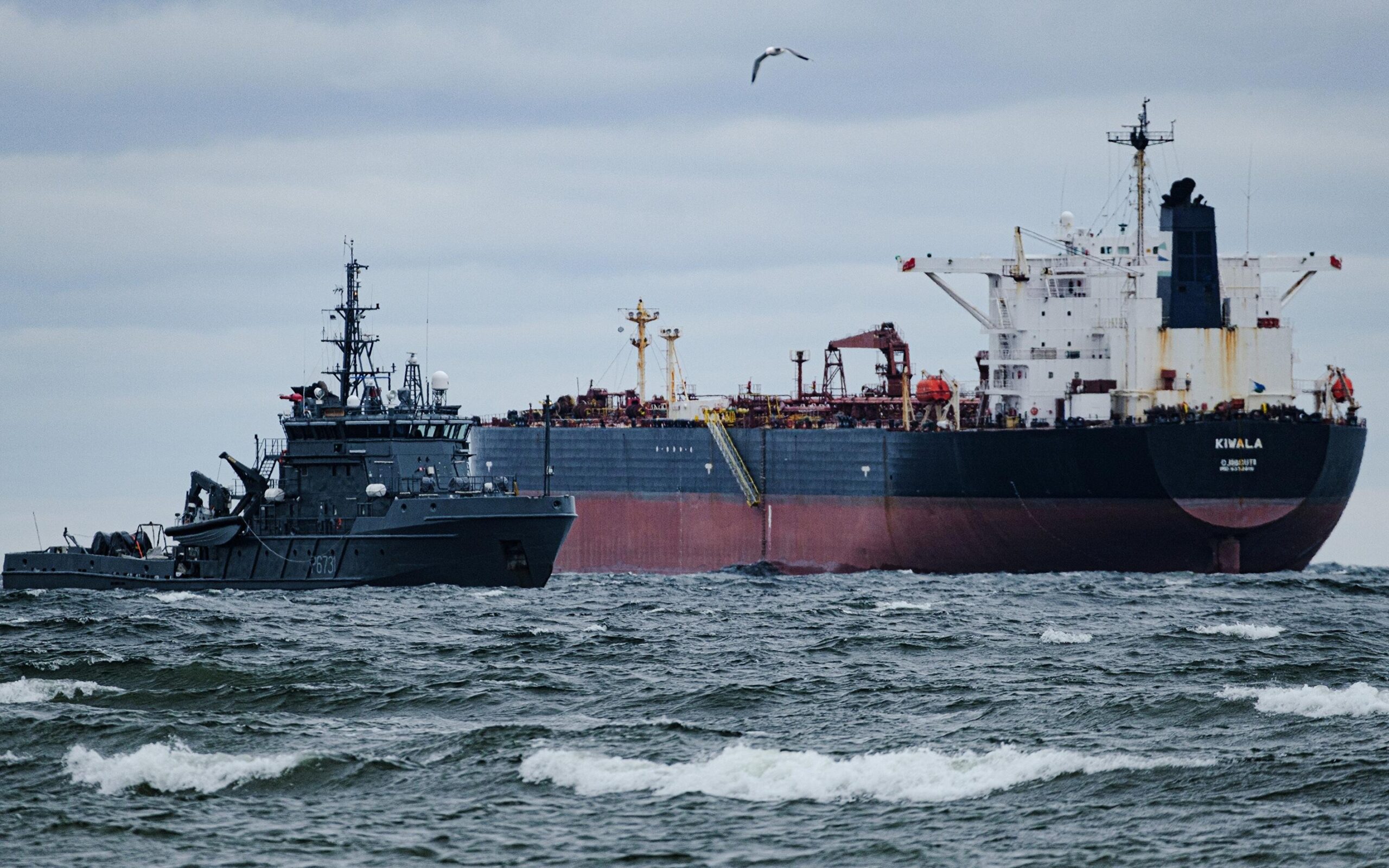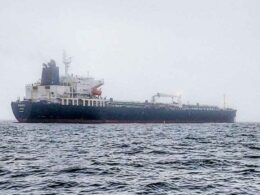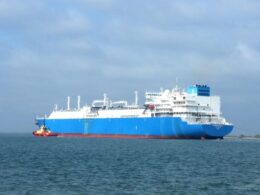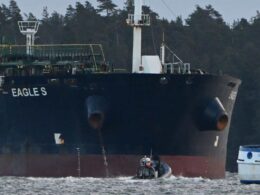Estonian naval forces detained the oil tanker Kiwala, part of Russia's shadow fleet, early on 11 April for document verification, legal status checks, and a safety inspection, Estonian Navy Commander Commodore Ivo Värk announced, according to ERR.
The vessel, reportedly operating under the flag of Djibouti, was caught not flying any flag, violating maritime law; although the crew provided a flag certificate, Djibouti's naval authority stated it could not find the Kiwala in its national registry, according to Euronews.
"It's no secret that over the past year, many vessels have appeared in the Gulf of Finland without proper documentation. We can confidently say these are part of the shadow fleet," Deputy Director General of the Police and Border Guard Board (PPA) Veiko Kommusaar said, according to ERR.
During the detention, Estonia's Department of Transportation has been checking the vessel's technical condition, insurance, and crew documentation. There are 24 people aboard the tanker, with a Chinese national serving as the captain.
Two more ships carrying Russian oil sinking in Pacific and Baltic
Euronews says Kommusaar added:
"Ships like this are actually not allowed to operate. Estonia exercised its right to detain the vessel for inspection."
Kiwala, which was en route from the Indian port of Sikka to the Russian port of Ust-Luga, is currently under sanctions imposed by the United Kingdom, Canada, and the European Union due to previous illegal activities.
Russia’s € 80 billion shadow oil trade operates through 387 tankers, intelligence says
According to the Ukrainian portal WarSanctions cited by Militarnyi, the Kiwala tanker, part of Russia's shadow fleet, exports crude oil and petroleum products from Russia to third countries, with its owners and operators regularly changing to avoid direct connections with Russia and conceal the true recipients.
"The vessel had no flag. It's a flagless vessel. Such vessels essentially shouldn't be moving. Estonia exercised its right to detain it for inspection," Kommusaar explained.
Andrii Klymenko, editor-in-chief of Black Sea News and head of the Black Sea Strategic Research Institute project, told Militarnyi that Baltic countries are currently seeking legal methods to influence the Russian shadow fleet passing near their shores, as these vessels transport large volumes of oil and petroleum products from Russian Baltic ports, generating significant profits for the war against Ukraine, while their poor technical condition raises concerns about potential environmental disasters in the event of an accident.
Germany confiscates Russian “shadow fleet” tanker with $ 43 million of oil
According to Klymenko, the sanctions imposed on the vessel do not allow for detention even in territorial waters, only prohibiting it from entering ports, and he noted that Western countries need to include a specific provision in sanctions against Russia's "shadow fleet" to address this issue.
Related:
- Estonian Parliament supports restrictions on churches justifying Russian aggression
- Royal Navy discovers Russian spy devices targeting UK nuclear submarine routes
- Estonia to construct 600 Ukraine’s war-tested bunkers along Russian border
- Baltic nations concerned Ukraine ceasefire would increase Russian threat to them
- Airbus chairman warns Putin may plan to seize Suwałki Corridor using Crimea invasion playbook
- UK PM Starmer says sanctions on Russia should increase, not weaken





